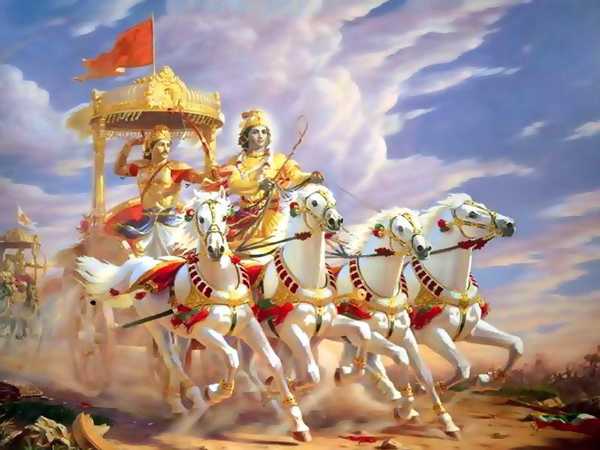Chapter 63

Duryodhana said,–‘O Kshatta, thou art always boasting of the fame of ourenemies, deprecating the sons of Dhritarashtra. We know, O Vidura, ofwhom thou art really fond.
Thou always disregardest us as children, Thatman standeth confest, who wisheth for success unto those that are near tohim and defeat unto those that are not his favourites. His praise andblame are applied accordingly. Thy tongue and mind betray thy heart. Butthe hostility thou showeth in speech is even greater than what is in thyheart. Thou hast been cherished by us like a serpent on our lap. Like acat thou wishest evil unto him that cherisheth thee. The wise have saidthat there is no sin graver than that of injuring one’s master. How isit, O Kshatta, that thou dost not fear this sin? Having vanquished ourenemies we have obtained great advantages. Use not harsh words in respectof us. Thou art always willing to make peace with the foes. And it is forthis reason that thou hatest us always. A man becometh a foe by speakingwords that are unpardonable. Then again in praising the enemy, thesecrets of one’s own party should not be divulged. (Thou however,transgressest this rule). Therefore, O thou parasite, why dost thouobstruct us so? Thou sayest whatever thou wishest. Insult us not. We knowthy mind. Go and learn sitting at the feet of the old. Keen up thereputation that thou hast won. Meddle not with the affairs of other men.Do not imagine that thou art our chief. Tell us not harsh words always, OVidura. We do not ask thee what is for our good. Cease, irritate notthose that have already borne too much at thy hands. There is only oneController, no second. He controlleth even the child that is in themother’s womb. I am controlled by Him. Like water that always floweth ina downward course, I am acting precisely in the way in which He isdirecting me. He that breaketh his head against a stone-wall, and he thatfeedeth a serpent, are guided in those acts of theirs by their ownintellect. (Therefore, in this matter I am guided by my ownintelligence). He becometh a foe who seeketh to control others by force.When advice, however, is offered in a friendly spirit, the learned bearwith it. He again that hath set fire to such a highly inflammable objectas camphor, beholdeth not its ashes. If he runneth immediately toextinguish it. One should not give shelter to another who is the friendof his foes, or to another who is ever jealous of his protector or toanother who is evil-minded. Therefore, O Vidura, go whither-so-ever thoupleasest. A wife that is unchaste, however well-treated, forsaketh herhusband yet.’
“Vidura addressing Dhritarashtra, said, ‘O monarch, tell us (impartially)like a witness what thou thinkest of the conduct of those who abandontheir serving-men thus for giving instruction to them. The hearts ofkings are, indeed, very fickle. Granting protection at first, they strikewith clubs at last. O prince (Duryodhana), thou regardest thyself asmature in intellect, and, O thou of bad heart, thou regardest me as achild. But consider that he is a child who having first accepted one fora friend, subsequently findeth fault with him. An evil-hearted man cannever be brought to the path of rectitude, like an unchaste wife in thehouse of a well-born person. Assuredly, instruction is not agreeable tothis bull of the Bharata race like a husband of sixty years to a damselthat is young. After this, O king, if thou wishest to hear words that areagreeable to thee, in respect of all acts good or bad, ask thou women andidiots and cripples or persons of that description. A sinful man speakingwords that are agreeable may be had in this world. But a speaker of wordsthat are disagreeable though sound as regimen, or a hearer of the same,is very rare. He indeed, is a king’s true ally who disregarding what isagreeable or disagreeable to his master beareth himself virtuously anduttereth what may be disagreeable but necessary as regimen. O great king,drink thou that which the honest drink and the dishonest shun, evenhumility, which is like a medicine that is bitter, pungent, burning,unintoxicating, disagreeable, and revolting. And drinking it, O king,regain thou thy sobriety. I always wish Dhritarashtra and his sonsaffluence and fame. Happen what may unto thee, here I bow to thee (andtake my leave). Let the Brahmanas wish me well. O son of Kuru, this isthe lesson I carefully inculcate, that the wise should never enrage suchas adders as have venom in their very glances!”




